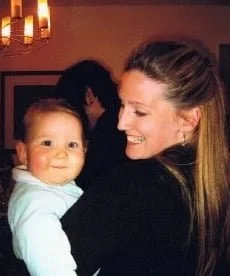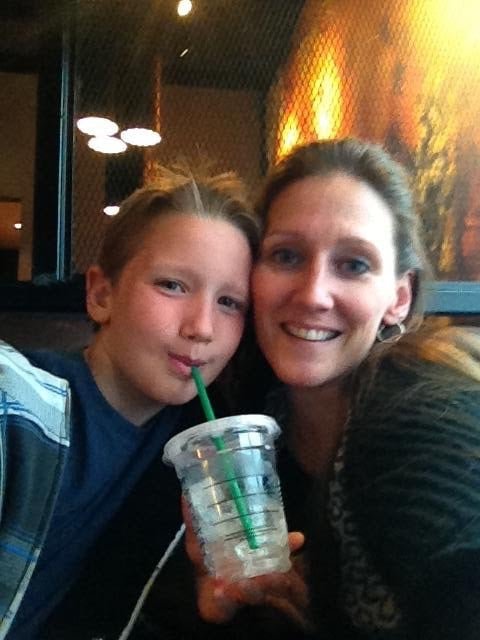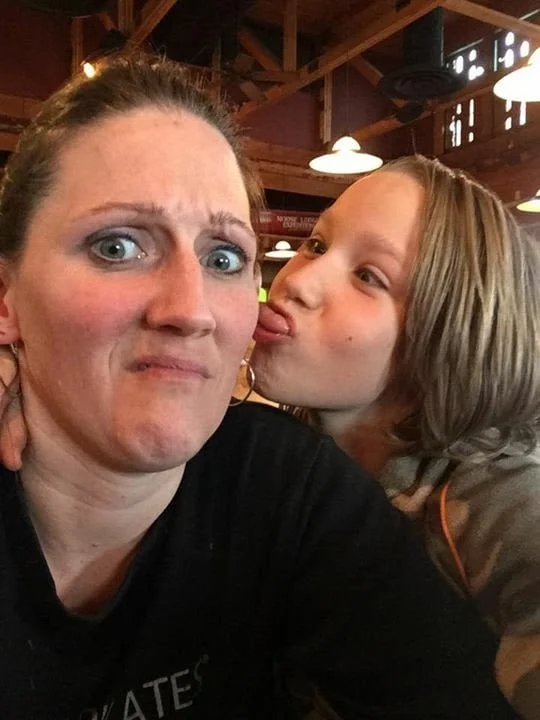RSD Reflections: From a Mom & Therapist
Part One - The Basics of RSD & A Snapshot of Life with LiamLast year I attended an ADHD conference put on by the Children and Adults with ADHD (CHADD) organization in Baltimore. I had been hearing a lot about Rejection Sensitivity Dysphoria over the years and in articles that started to pop up more and more across the different platforms I followed. So, when I realized there were multiple workshops on this subject at the conference, I thought it would be a good idea to sit in and hear more about it.
In a nutshell, rejection sensitivity dysphoria (RSD) is a term used to describe an extreme emotional sensitivity to the perception of rejection or criticism from others.
People with RSD can experience intense feelings of distress, anxiety, or sadness in response to real or perceived rejection. It’s commonly associated with attention-deficit/hyperactivity disorder (ADHD) which is probably why it’s gaining a bit more traction across social media.
As luck would have it, I had the good fortune to sit right up front in a massive conference hall with the psychiatrist who was one of the driving forces behind RSD research. Dr. William Dodson’s insights into RSD within the ADHD population have helped raise awareness about this aspect of the condition and how it influences relationships, emotions, and overall well-being. That was exciting! To be able to learn more about this from the man himself.
What I didn't realize, was how it would impact me so personally.
If you know me well and you know my story, you also know that I am the proud mom (aka “bruh”) of two young adult men both with ADHD and Tourette syndrome. And they couldn't be more different! (Surprise, Surprise!). I have one son (2nd born) who is ADHD - Inattentive type, floats through life with not a care in the world, (he doesn’t remember anything we say), but life is a cabaret for that kid… and then, there’s my firstborn, Liam, with ADHD - Combined type (hyperactive and inattentive - you can read more about that here). While both also have different tics associated with their Tourette’s, my #1 has always had his share of deeper struggles. (**Let me just stop here and add that none of my blogs, or any part of my personal story or that of my family ever gets posted without their consent!)
From the time he was a young child, Liam always felt things much deeper, more intense, and much more personally. He was quick to react, and his moods would flip on and off like a light switch. We used to joke that he was Doctor Jekyll and Mr. Hyde, and I have drywall mud patches all over my walls to prove it. You couldn't laugh at him, point out any flaws, offer help, or even offer constructive criticism without the switch flipping.
Why are you SO ANGRY?!?!
The rages could “seemingly” come out of nowhere for things that were so inconsequential to you or me. He might stub his toe (punches hole in the wall), lost his “mission” on a video game (PS4 controller thrown at the TV…breaking both), pointing out that he’d typed a word twice in the essay he asked me to edit (entire paper crunched into a ball and thrown in the trash), noting lovingly how utterly cute his cowlick was today, sticking straight up about 3” because his hair was getting long (stomps back up the stairs and slams his door open and closed 4x breaking the door frame), chuckling at the milk mustache on his upper lip at the dinner table (throws his fork down on the plate, splashing spaghetti sauce all over the table and leaving in a rage).
Having worked with a specialist for most of his young life for TS, we were informed about something called Tourette’s rages, or “storms” as they are sometimes referred to. And so, with what little research I could find about these rages (other than the fact that it’s just considered a comorbid issue), as parents, you just tend to trust your specialist and try to change your parenting style (good luck!) and hope for the best! We even tried medication to help Liam with his rages but, well, puberty…enough said. Even meds can’t fight that fight.
Teachers would share that he was a very smart, kind, empathetic, caring student, who had a lot to contribute, but he could fly off the handle without notice. That’s the crazy thing – so let me tell you about my sweet Liam....and before continuing - here's a trigger warning for those who need it.
We’d argue, and he would storm out of the house in a black-out rage. (I can literally see his face change, eyes glaze over, and Dr. Jekyll appear.) He’d punch the brick siding of our house all the way down the stairs and scream at the top of his lungs that he hates this life (hello neighbours, don’t mind us), he’d scrape and bruise all his fingers (not feeling it), walk down the street to leave this “horrible” life and the family he “hated” and then come back 5min later and sit on the porch steps because he knew I would worry about him and didn’t want to upset me.
How do you parent this?
He would leave class in a huff, smash lockers as he walked from class down to the office, get up during a test and (again) crunch it into a ball and throw it in the garbage as he ran out of the class, (pulling the test out of the garbage, the teacher reported that he’d only missed one small short answer question – the rest had been well done).
Eventually, we had to implement safe spaces for him to “cool off”. He was given a safe person at school whom he could go to when he could feel himself getting overwhelmed and about to burst. Yet, on the “good” days, he was a model student. Liam has such a heart for marginalized youth, and neurodiverse kids who don’t feel understood - because he gets it. In fact, multiple times throughout his high school career, Liam was observed helping to calm a young student with autism who would become dysregulated in the class and run out into the hallway. He was so good at it that Liam would get called out of his own class to come and help this student who had taken a real liking to Liam. I just didn’t understand the dichotomy!?
ADHD meds helped the ADHD, but he didn’t like it and wasn’t consistent enough to remember to take them. His pediatrician felt that a depression diagnosis was worth exploring and he was prescribed anti-depressants because of how low his mood was. Although they did help him come out of the rages quicker (big-whoop-dee-do), they didn’t actually control the rages themselves. You can still pull a door off its hinges in 3-min.
I think the worst part of it for me, was the aftermath. Liam would lose it, say horrible things, and destroy things. Thankfully he never lashed out physically toward others, but I can’t even tell you how many times we’ve had to replace, household items, chairs, TVs, bedroom doors, etc.
When it was all over: Despair. Shame. Humiliation.
A teenage boy reduced to a small helpless child, uncontrollably weeping because he knows he’s been so awful, said things he didn’t mean, destroyed things that were so precious to him, hurt our feelings, was mean to his brother, the list goes on and on…a horrible vicious cycle.
Fast forward to this conference and it felt like I was the only one in the room.
Stay tuned for part two!



